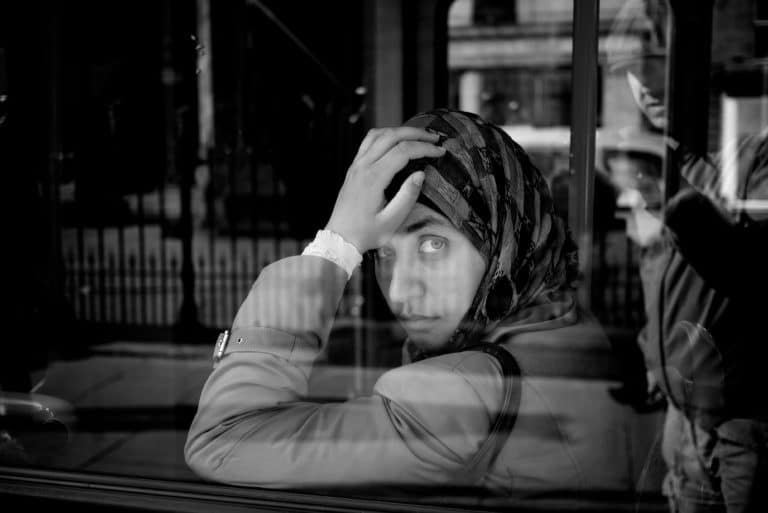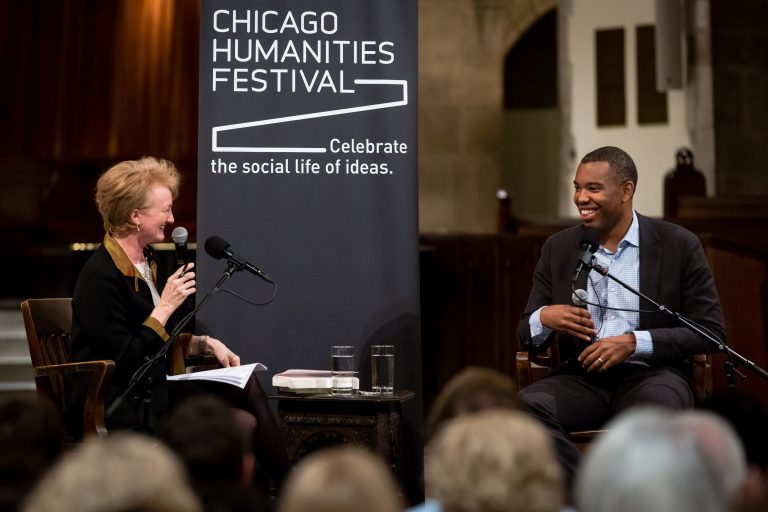
Image by Thomas Leuthard/Flickr (CC BY 2.0)..
The Unbearable Lightness of Being White
This week, after a New York grand jury declined to indict the officer who killed Eric Garner, a Staten Island father of six, some people took to the streets. Some people staged “die-ins.” Some people did nothing.
And some people turned to social media. Jason Ross, a writer for The Tonight Show with Jimmy Fallon, started a hashtag, #CrimingWhileWhite, intended to surface the racial double standard in policing through individual white people’s anecdotes of moments when they’ve escaped consequences for criminal behavior. It caught on like wildfire. Hundreds of thousands of white Americans have contributed.
On the one hand, the “unpacking of our invisible knapsack,” as Peggy McIntosh would put it, is powerful. (If you haven’t read her foundational article on privilege, don’t delay; it’s a fantastic primer on privilege.) Wednesday night, I had a difficult time tearing myself away from the steady stream of 140-character stories featuring white people of various ages wriggling out of the hands of the law without much effort, sometimes even getting knowing pats on the back from those very hands as the pale “offender” went on with his or her day, or for the sake of comparison, his or her very life (as Mike Brown and Eric Garner, and so many others, have not). The sheer volume of these stories, the ease with which they spilled onto keyboards and out into the Internet ether, is testament to just how different white Americans’ experiences of law enforcement continue to be from our neighbors and classmates and colleagues of color.
I thought about adding my own anecdotes to the growing pile; I’ve slipped out of consequences for shoplifting at a J.C. Penney as a kid, skinny-dipping in a public pool in the middle of the night as a teenager, drinking in public and jumping subway turnstiles in my 20s. It was tempting, in part, because it simply felt like something to do in the face of such utter depravity.
When I heard about the verdict in the Eric Garner case, I immediately felt profoundly inert — like a ghost among ghosts, floating through the Oakland airport, unable to do anything, say anything, be anything that would proportionally express how wrong the verdict was — it’s wrongness on top of wrongness (Mike Brown) on top of wrongness (Tamir Rice) on top of wrongness (Oscar Grant).
In light of that kind of “lightness” (the worst kind, the kind that takes over my body when I feel like, despite all of my power, I am somehow powerless), 140 characters of testimony of my own privilege seemed like, well, at least something. I could risk a bit of public embarrassment if it would contribute to the public case being made for the lethal and ongoing existence of racism in this country. Jason Ross, who started the hashtag, urged white people:
“Tweet your stories of under-punished f-ups! It’s embarrassing but important!”
But therein lays the rub: embarrassment. The emotional contrasts that emerge from an exercise like this are at the broken of heart of our body politic. I recall these moments with a sort of nostalgia; I can smile at my naïveté, my recklessness, my adolescent stupidity. I can remember standing in the moonlight, dripping wet, while my high school boyfriend insisted to the cop that we hadn’t been in the pool. I can still picture the gaudy costume jewelry that my best friend slipped into her underwear while I, anything but slick, got caught on the security cameras. I can actually laugh.
So I’m back where I started: the unbearable lightness. I could contribute my “Twitter testimony,” and maybe my 140 characters would meaningfully grow the evidence for racism, but, in the process, I’d be reconnecting with my own emotional privilege in a way that disgusts me.
White people, particularly with class privilege, are policed differently. Plain and simple. But acknowledging that doesn’t go nearly far enough. We also have different emotional experiences of the spaces that shape our days: sidewalks, classrooms, airports. Our “hijinks” are Latinos’ priors. Our overwhelm is a poor woman’s negligence. Our funny stories may be black men’s last breaths.
It’s strategic for white allies to disclose their experiences of staying safe while breaking laws big and small, but it’s not enough. The list doesn’t get at the emotional price that being a person of color in this country still exacts. In some ways, it actually reproduces it.
The painful truth is that my moral imagination isn’t potent enough to know what that price really is, what it feels like to wake up and walk around in black skin in a country that half-heartedly acknowledges the continued existence of racism, even as grown men die in the streets, suffocated and bullet-ridden. It’s part of why I read Brittney Cooper and Ta-Nehisi Coates and Spectra and Sisonke Msimang and Mychal Denzel Smith and Joshunda Sanders and so many others so hungrily. They can never close the gap of experience and comprehension. That would be impossible. But they are masters of building bridges of beautiful and structural integrity.
I know what I don’t know, in part, because of them. I also know what I don’t know, in part, because of what I do know. I know the emotional toll of growing up female. The alchemy of my femaleness and the world’s violence is ongoing. It is the sudden taste of humiliation, the sense of being utterly alone among so many, well-intentioned others, the terrible churning on what I should-have could-have would-have said, the curtailing of movement, the constant anticipation, the inescapable empathy, as if my pores have no boundaries, the fruitless search for my experience reflected in mirrors of import. If this doesn’t make sense to you, blame it on my shortfalls as a writer, but consider that it is also because you aren’t female. That there is an emotional landscape that you can’t travel without the most adept and generous of travel guides. Maybe, almost never.
This is why we have art.
Twitter is not art, alas. At moments like these, it may be strategic. It may be worthwhile. But let’s not forget that it’s utterly inadequate when we consider the creative fortitude needed to acknowledge the emotional lives of others within a world still so filled with senseless destruction.


Share your reflection